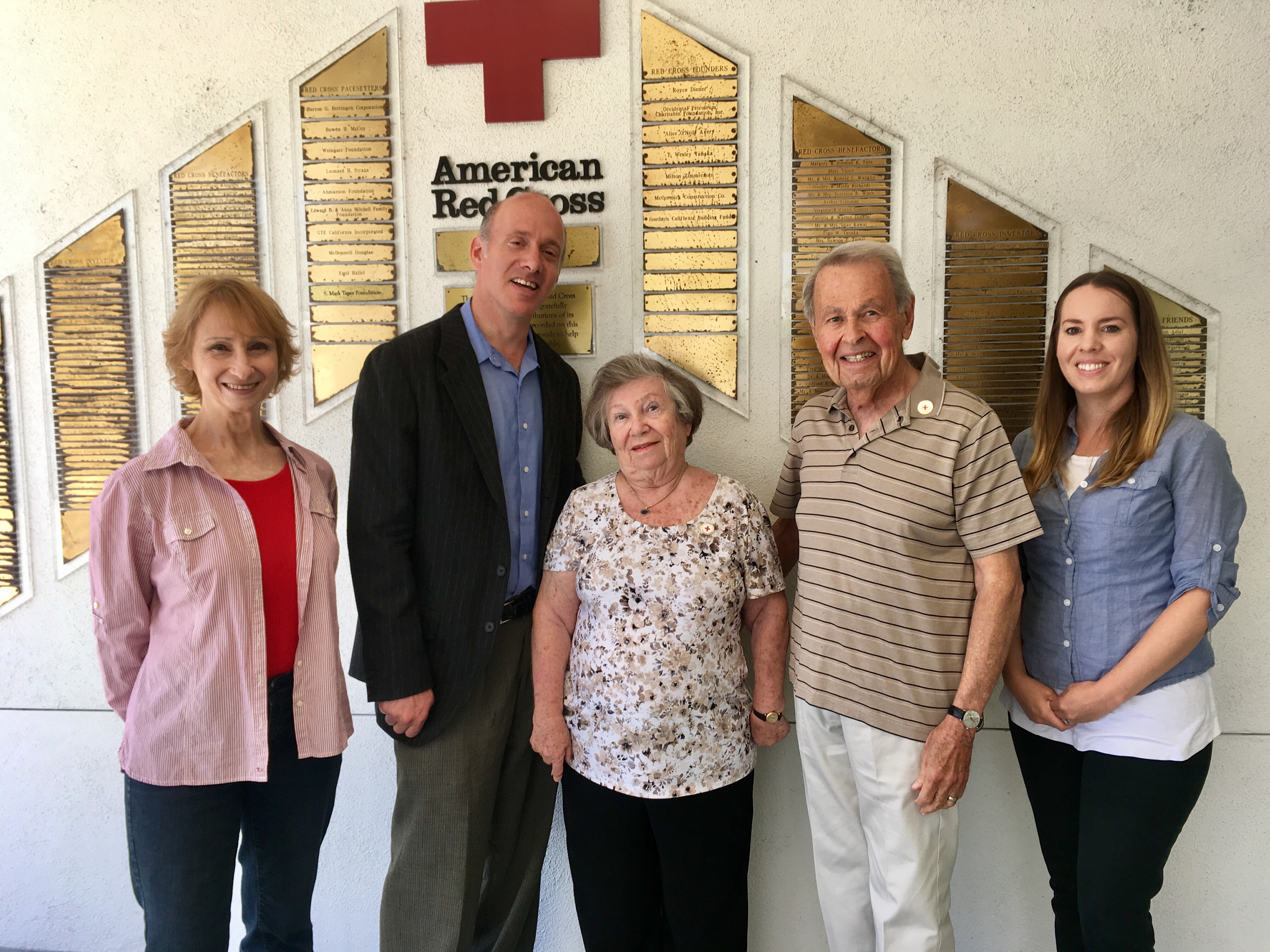By Carly Klein, Los Angeles Region Americorps Member
This March, the Red Cross Los Angeles Region International Services Team hosted two humanitarian documentary screenings of the film Human Flow. Renowned filmmaker Ai Weiwei released Human Flow in 2017. Human Flow documents the global refugee and migration crisis through a unique, compassionate, and elegant perspective. Filmed over the course of a year in 23 countries, the documentary follows “a chain of urgent human stories that stretch across the globe. Human Flow is a witness to its subjects and their desperate search for safety, shelter and justice.”
We showed the movie on March 14 in Long Beach and on March 24 in West LA. All in all, about 40 people were able to see this movie with us. At our West LA screening, we engaged event attendees in discussion before and after the film: first, to set the stage for the viewing; and after, to reflect on what we had witnessed. We were able to engage in lively discussions, learn from each other, and have a fulfilling viewing experience as a result. To spark consideration and reflection, I posed questions such as:
- What responsibility, if any, do we have to take care of refugees around the world?
- What makes a person a refugee? Is it just a legal status, or something much deeper?
- How can closely examining this troubling moment in history, as well as the WW2 refugee crisis, inform our choices today and in the future?
After seeing Human Flow, I believe it’s fundamentally critical that more of us take the time to learn about this global humanitarian crisis. Many of us, especially in the Western world, have the luxury of shielding ourselves from what is occurring; meanwhile, millions of men, women, and children face conflict that drives them from their homes and forces them into uncertain and dangerous situations.
According to the UN High Commissioner for Refugees, “We are now witnessing the highest levels of displacement on record. An unprecedented 65.6 million people around the world have been forced from home. Among them are nearly 22.5 million refugees, over half of whom are under the age of 18. There are also 10 million stateless people who have been denied a nationality and access to basic rights such as education, healthcare, employment and freedom of movement.”
There is no simple fix to this problem, and it’s easy for us to feel powerless in the face of the global forces that perpetuate this humanitarian situation– which is what makes Human Flow so important. This film provides a way in which we can stay informed of the crisis. It allows us to see the faces, hear the voices, and learn the stories of a small sample of stateless individuals, so we can generate a deep respect for their humanity. It helps us gain perspective about how lucky we are, and how important it is to be grateful for opportunities and luxuries that are non-universal. Ai Weiwei did a brilliant job of showcasing the complexities of the global situation as well as the dignity of each person he interviewed. I am glad we were able to share his work with our Red Cross community.
You can view Human Flow at home on Amazon Prime, Google Play, or YouTube.





Carly:
What a beautiful article. Thank you. I was one of he fortunate folks to see this important movie at the Los Angeles Region showing. It staggered me as I’m sure it did most of us. It still lives in me, ever reminding me to be open to whatever might be done in regard to any and all refugee situations that still remain or may evolve or even appear in my personal life.
As the Jordanian Princess, Dana Firas, said in the film, “Being a refugee is much more than a political status. It is the mot pervasive kind of cruelty that can be exercised against a human.”
Thank you so much, Carly, your committee, and the American Red Cross, for keeping such important issues in our day to day lives.
Great job.
Dean Stewart